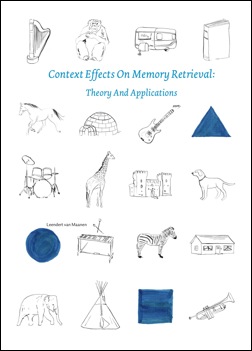Recent publications
December 2009:
Van Maanen, L., Van Rijn, H., & Borst, J.P. (2009). Stroop and Picture-Word Interference are Two Sides of the Same Coin. Psychonomic Bulletin & Review, 16(6), 987-999. pdf
A paper that discusses a peculiar difference between the Stroop effect and picture-word interference with the general opinion that these effects are similar.
January 2010:
Van Maanen, L., Van Rijn, H., Van Grootel, M., Kemna, S., Klomp, M., & Scholtens, E. (2010). Personal Publication Assistant: Abstract recommendations by a cognitive model. Cognitive Systems Research, 11(1), 120-129 (Special Issue on Brain Informatics). url pdf
A paper that introduces a system that provides relevant scientific literature based on the user’s own publication record. The system is based on a formal theory of human memory, arguing that recommender systems that model a user’s memory capabilities are useful in predicting relevance. This paper is the direct result of a course I taught in 2007 in which the students and I explored various options of using models of memory in recommender systems!
Expected January 2010:
Van Maanen, L., & Van Rijn, H. (2010). The Locus of the Gratton Effect in Picture-Word Interference. TopiCS in Cognitive Science 2(1), 168-180. pdf
This paper shows that sequential effects in picture-word interference may influence the locus of the interference effect. In addition, it discusses a model that accounts for the observed effects.
Ph.D. thesis finished!
Winner Best Student Paper at ICCM

The paper describes how cognitive control may determine not only the effect size of picture-word interference, but also the stage in a task in which the interference occurs. Using a RACE/A model we show that the apparent shift of the interference effect from a late to an early effect locus may be the result of a decrease of the cognitive control on reading the word (of the picture-word stimulus).

